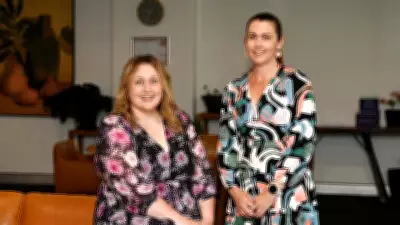
When Australians think about retirement planning, their minds typically jump to superannuation balances and investment portfolios. But according to leading financial expert Fran Hughes, the most valuable aspects of retirement have nothing to do with money at all.
The Missing Piece in Retirement Planning
Hughes, a respected voice in financial circles, argues that while financial security is crucial, it represents only one piece of the retirement puzzle. Many people spend decades preparing their finances for retirement but give little thought to how they'll actually live once they stop working.
"We obsess over our super statements and investment returns," Hughes observes, "but we rarely ask ourselves the most important question: What will make me get out of bed with purpose when the structure of work disappears?" This fundamental question, she insists, requires deeper consideration than any financial calculation.
Building a Life Beyond the Paycheck
The transition from a structured work life to the open-ended freedom of retirement can be surprisingly challenging. Hughes identifies several non-financial areas that require careful planning:
Social connections represent one of the most critical elements. Work provides built-in social interaction that many people underestimate until it's gone. Retirement often means losing daily contact with colleagues and the sense of community that comes with workplace relationships.
Hughes recommends proactively building and maintaining social networks outside work long before retirement. "Your golf buddies or book club friends might become your new 'colleagues' in retirement," she suggests. Developing these connections while still working ensures you have a ready-made social structure when you need it most.
Finding Purpose and Structure
Beyond social needs, Hughes emphasizes the importance of purpose and routine. "Work gives us structure, deadlines, and a sense of contributing to something larger than ourselves," she explains. "When that disappears, many retirees experience a loss of identity that no amount of money can fix."
She encourages people to explore potential retirement activities and interests well in advance. This might involve volunteering, developing hobbies into more serious pursuits, or even planning for part-time work in a field you're passionate about. The key is to test these interests before fully retiring to ensure they provide genuine satisfaction.
Physical and mental health planning also features prominently in Hughes' approach. She notes that maintaining health becomes increasingly important in retirement, both for quality of life and for managing healthcare costs. Regular exercise, cognitive challenges, and preventive healthcare should all be part of a comprehensive retirement strategy.
Practical Steps for a Meaningful Retirement
Hughes offers concrete advice for those looking to build a retirement that's rich in more than just financial terms. She suggests creating a "retirement life plan" that runs parallel to your financial plan.
This life plan should include specific goals and activities for how you'll spend your time. Rather than vague aspirations like 'travel more' or 'relax,' Hughes recommends detailed planning: "Which countries do you want to visit? What skills do you want to learn? Which community organizations need your expertise?"
She also advises having honest conversations with your partner about expectations for retirement. Many couples discover they have very different visions for how they'll spend their time together—and apart. Discussing daily routines, personal space needs, and individual goals can prevent conflict later.
Perhaps most importantly, Hughes encourages people to practice retirement before fully committing to it. Taking extended leave to test retirement plans can reveal unexpected challenges and opportunities. This trial period allows for adjustments before making the permanent transition.
While financial preparation remains essential, Hughes' perspective serves as a crucial reminder that the best retirement is about more than money. By investing time and thought into the non-financial aspects of retirement, Australians can create a post-work life that's truly rewarding—the kind of retirement that no amount of money can buy.





